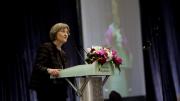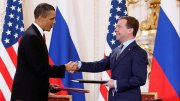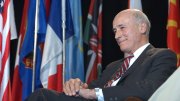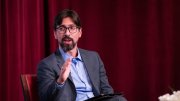In her evening address, President Faust built upon the details of Harvard’s history of educational involvement with China: some 250 Chinese earned Harvard degrees between 1909 and 1929, she noted, and more than 1,200 students and scholars from China, Hong Kong, and Taiwan enrolled or visited the University last year; the law and medical schools have been active in China for a century; and Harvard experts now work with their Chinese academic peers and government officials on health policy, pollution control, and a wide array of arts and sciences.
More broadly, she said, “In a single decade, along with the world’s fastest growing economy, China has created the most rapid expansion of higher education in human history.” In that growth she saw “unimagined possibilities for understanding and discovery. It is a race that everyone wins.” Importantly, she stressed, those possibilities lie not only within the vital realms of applied and professional knowledge, but also in the sphere of “creative and critical thinking…unfold[ing] not from a fixed model or prescribed solutions, but from vivid debate and unorthodox thinking.”
At the end of her address, Faust invoked the memory of the University’s first Chinese instructor, Ko Kun-hua (read the Harvard Magazine Vita profile), hired in 1879 to teach undergraduates Mandarin. Upon his death in 1882, she said, “[A] keen observer of his life at Harvard put it this way: ‘May [his] work bear fruit in a better understanding, a more confiding and generous friendship, between the oldest civilization on earth and the newest.’ May the Harvard Center Shanghai and our work here bear similar fruits of friendship, knowledge, and understanding.”









